
Co-Producer
1985 – two years after the end of the military dictatorship in Argentina, leading members of the junta are tried in court. Ulises de la Orden creates 18 succinctly edited chapters from 530 hours of footage, bearing witness to state terror.
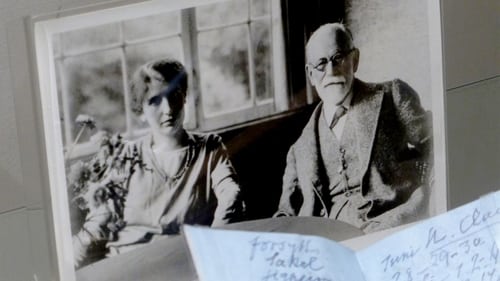
Producer
An account of the life and work of the influential Austrian psychiatrist Sigmund Freud (1856-1939), an iconic figure and a godless demigod who dared to enter the darkest depths of the human mind; through his correspondence and his own voice, and that of his family and friends.

Producer
Mourning his boyfriend Frédéric's death from an overdose, the French filmmaker David Teboul goes to Siberia on a ritual journey. Out here, under the enormous dome of the skies, he finds the free space to disentangle his thoughts again. And in the villages, both young and old people unexpectedly turn out to be prepared to respond to his invitation to talk about an event that changed their lives. Life, death, love and existence.
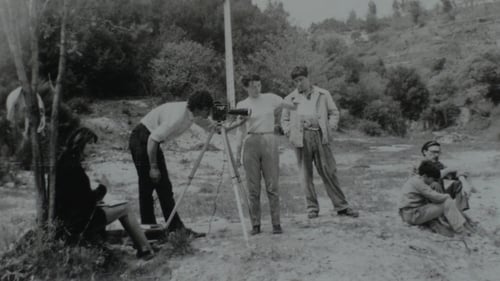
Director
Famous educator Fernand Deligny tries to find ways to communicate beyond language with troubled and autistic children in his care.
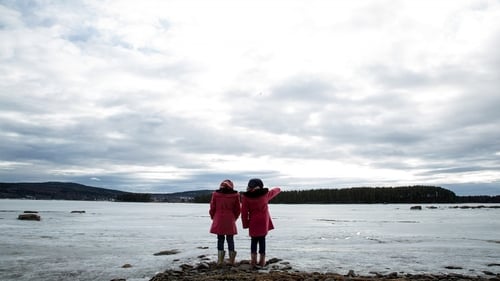
Producer
A documentary film by Canadian Director Debra Kellner, produced by Frank Giustra, Serge Lalou, and Richard Copans. Inside My Heart chronicles the plight of three refugee families fleeing their war torn countries over a period of nearly 3 years. Despite having lost everything and their harrowing stories about the atrocities of war, each family continues their fight to stay alive. Unable to return to their countries without the risk of being killed, today they are forced to live with the consequences of their broken dreams.

Producer
Located on the île de la Cité, in the middle of the Seine, the Paris Law Court looks like an impenetrable fortress. Like Kafka’s castle, it guards its secrets well. It is the place of power. The filmmaker, who worked there for several years as a crime reporter, is extremely familiar with its labyrinthine spaces, its practices, its ceremonies. She comes back to it now, while the Courthouse, such as she knows it, is about to disappear: its relocation is planned in 2017. So, she explores it, camera in hand, on the traces of her experience.

Producer
“You buy a book. You don’t really know why. It lies around, and then one day you open it, almost absentmindedly. And there you are, facing your own innermost secrets.” So begins Stan Neumann’s cinematic adaptation of W.G. Sebald’s award-winning novel, Austerlitz. The vaulted and majestic space of the railway station in Antwerp is where our journey really starts with actor Denis Lavant (Holy Motors) addressing the camera directly, and musing on the curious nature of railway stations. This bravura opening is startling, charming, and like the unnamed narrator of the book, you surrender to the proceedings and perambulate alongside Lavant, as he journeys through the great buildings of Europe, faded and shuttered hotels and grand colonnades with broken windows.

Screenplay

Director

Producer
Resorting to the images that make up three quarters of the last century, Jean-Louis Comolli chose films that crossed his path fifty years ago, discovering his own history of cinema, and particularly the documentary cinema. Visual score orchestrated by a voice off (his) which lists topics that are important to him - the place of the viewer, the fiction in the documentary, the impact of technical progress on the artistic field ... -, the film weaves unpredictable wires between the excerpts .

Cinematography
Resorting to the images that make up three quarters of the last century, Jean-Louis Comolli chose films that crossed his path fifty years ago, discovering his own history of cinema, and particularly the documentary cinema. Visual score orchestrated by a voice off (his) which lists topics that are important to him - the place of the viewer, the fiction in the documentary, the impact of technical progress on the artistic field ... -, the film weaves unpredictable wires between the excerpts .
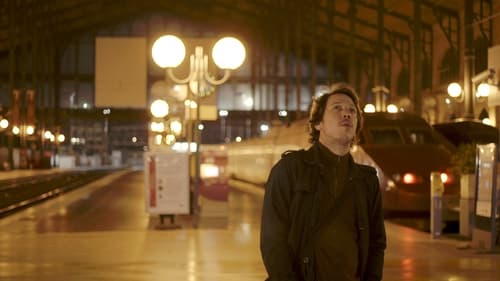
Director of Photography
Paris, North Station, anything comes by, even trains. One would like to stay, but they have to hurry up... Like other thousands lives crossing, Ismael, Mathilde, Sacha and Joan are going to meet here...

Cinematography
The film intertwines historical events and intimate memories. I observe how architecture represents the transformations of society and those who give form to this architecture. We follow the journey of Munio, my father, born in 1909 in Silesia, Poland, the son of a tenant farmer of a Prussian junker. At the age of 18, Munio goes to Berlin and Dessau to meet Walter Gropius, Kandinsky and Paul Klee at the Bauhaus. In 1933, the Bauhaus was closed by the Nazis, who accused Munio of treason against the German people. Munio was imprisoned, then deported to Basel. He left for Palestine. Upon his arrival in Haifa, he began a career as an architect and adapted European modernist principles to the Middle East.
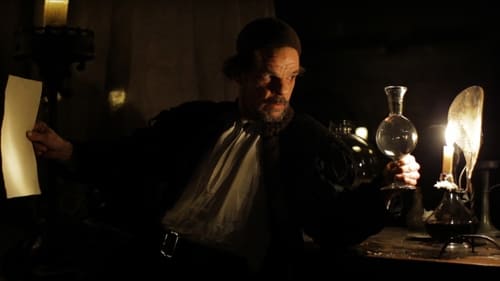
Producer
During the summer of the year 1610 one of the first telescopes made by Galileo ends up in the hands of Jean Kepler in Prague who at the time was the astronomer of Emperor Rudolp II. Kepler observes the night-sky as nobody has seen it before him. His observation platform becomes the meeting place of Prague's imperial court. In this entourage Kepler separates science from superstition, freedom from intolerance.

Producer
Moullet explores the causes and consequences of cases of mental disorders that were especially numerous in the Southern Alps.

Producer
A realist dramedy about dedicated social workers who devote their long shifts to helping pregnant women.

Le producteur
Whilst seeking out locations in the South of France for his next film, director Luc Moullet comes across a male corpse. He immediately decides to use this to his advantage. By swapping his passport with that of the dead man, Moullet hopes that the world will believe he is dead, thereby ensuring a renewed interest in his work. Unfortunately, the scheme backfires, since the dead man was someone rather important...

Producer
"Bania" is an exploration Russian society through its bath-houses in the city, the countryside, in a monastery, a factory or a prison. The film plays with the boundaries between personal and social space in scenes where naked bodies, marked by tattoos, suffering, labour or war, tell a tale. This film was made by a photographer who, confronted by these naked bodies bathed in steam, invents an unique and timeless plastic world, in the style of classical painting.

Director

Producer
On Good Friday in Burzet, a small town in Ardeche, the locals gather to remember Jesus's Crucifixion through solemn pageantry. Between 1980 and 2003, Courant filmed this community's annual reenactment of the Via Crucis 24 times.

Thanks
An adventure of three characters: Clarisse, a psychic’s apprentice, Lazare, who works at the Parisian catacombs, and the bronze statue of a lion at the Denfert-Rochereau (in the 14th arrondissement). Clarisse and Laraze meet daily, but one day Lazare disappears and the lion disappears as well!

Director
Director Richard Copans sets out to find his origins. In search of family ties, he meets a laborer, a Jewish poet's son, a violinist, a genealogist, a descendant of slaves, several cousins and three jazz musicians, whose music will never leave him.

Delegated Producer

Director
Norman Mailer profiles life in America since the Second World War. Farewell to the Fifties. Mailer fought for his country in the Second World War- an experience that inspired his novel The Naked and the Dead. But, disappointed by post-war America, he grew to despise the fifties.

Director
Norman Mailer frankly discusses American culture, politics, literature, and his own tumultuous life.

Director

Producer
A documentary about the French writer Jean Genet and his relations with the Palestinian revolution. One day after the September 1982 massacre at the refugee camp of Shatila in Beirut, Genet visits the camp. Suffering from throat cancer and having written nothing in years, Genet begins to write on the threshold of his death about this disturbing new experience. It leads to his last book, entitled “Un captif amoureux” in which Genet reflects on the Palestinian revolution, its defeat, and the loss of one’s homeland. In this film a young French woman of Algerian origin who is reading the book returns to the landscapes of the Palestinian resistance and the refugee camps full of exiles, in search of Genet.

Production Accountant
A small Algerian town, off the beaten track of the war that is tearing the country apart. At the heart of the crisis that is destroying it, two young men, without work, without leisure activities, without hope, without anything... The film follows them in their daily wanderings between endless boredom and the expectation of the improbable. And shows their humour, their friendship, their will to live regardless.
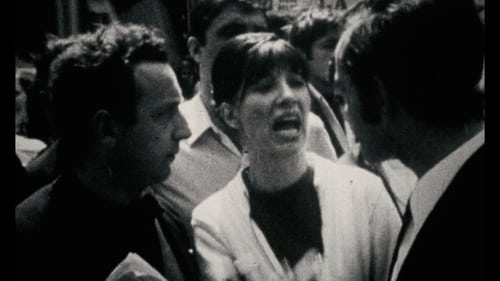
Producer
Hervé Le Roux discovered a short film about a strike in a battery factory. Now he's looking for one of the workers seen in this film: a young woman who is very, very angry.

Cinematography
I saw this happen : Raye left home. Why ? To see what was waiting for her out there. Europe ! It didn't matter where she went, the Mediterranean coast, Strasbourg, Zurich, Berlin, she's young. Then her father, Abel, left. Perhaps he wanted something else to happen to him. Things began to happen on the ship, but Odessa is where it really began. So Nellie was left there alone. Maybe she couldn't have said it, but that's what she needed. I mean, to be alone with herself. That's why she sent Raye and Abel away. So without moving, with everything around her moving very fast and also in the microscope which is her work, Nellie had her own trip to make. As for this kind of travelling, that's what each of us did. I know, I was there.

Producer
A small company valiantly struggles to survive under the respectful yet probing camera of Claire Simon in “At All Costs.” As the docu opens, founder and manager Jihad is off to see his banker. The lack of ready cash to pay his loyal employees, wholesale produce providers and a whole range of other creditors, including the tax-gobbling French government, is omnipresent. From a staff of 14, Jihad is down to three cooks, one delivery driver and a secretary in less than six months. The good-natured pluck of the remaining employees is at the heart of the film. Subterfuges for putting up a brave united front include scheduling food orders from a coin-operated pay phone when the office phone is cut off for nonpayment.

Producer
Cédric is a child like millions of others. The only difference is that the little boy is seriously ill and must spend six months in a hospital. Fortunately, the medical staff are well aware that Cédric, like other kids named Steve or Dolores, must - above all else - live his child's life.

Producer
A documentary about Che Guevara in Bolivia, based upon his journal listing daily agendas

Producer
Nowadays, supermarkets are being built where cinemas and churches used to be. Logical evolution as consumerism is the religion of the 20th century: supermarkets are the cathedrals of the future.

Associate Producer
One night Jorge will meet with a Japanese industrialist, who will allow him to abandon his teaching position and resume his chemical work. However, when he gets home he finds a person there.

Director

Cinematography
A voyage into the museum's reserves, and part of the extra work involved to mount the expositions after the renovation of the Louvre in the 1980s, when the glass pyramid was added to the classic buildings. From the preservation rooms through the frame and painting retouches by experts, to the personnel instruction on how to be efficient in protecting the collections, and look nice to the visitors. (Written on IMDB by Artemis-9)
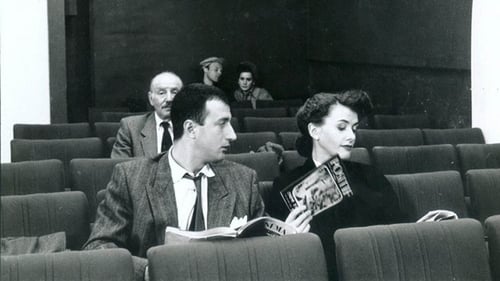
Director of Photography
Guy, film critic of the Cahiers du Cinéma and terminal cinephile, plans to write about the Vittorio Cottafavi retrospective at the Alcazar, his local cinema. One day he notices that Jeanne, film critic of Postif, the rival magazine, seems to be following him. He is intrigued-- is she interested in him, or planning to poach his praise for Cottafavi in her own article?

Cinematography
A man tries different ways to open a Coca Cola bottle.

A man tries different ways to open a Coca Cola bottle.

Cinematography
The most legendary 'sequence' ever achieved by a mountaineer: on 12 and 13 March 1987, in 40 hours, 26-year-old Christophe Profit managed to climb three of the highest north faces in the Alps, in winter: Grandes Jorasses, Eiger, and Matterhorn. But over and above this 'coverage' of the feat, we discover the wings, the story behind the project, the peaks and troughs of the preparations for it, and the personality of the man behind the climbs, a dancer on sheer rock faces, focusing all the energy and reflexes of life itself in his fingertips.

Director of Photography
Two quarreling lovers from opposite sides of the economic scale take central stage in this drama about Veronique and Adrien. Veronique is wealthy and from the provinces, Adrien is impoverished and his ancestors come from Brittany. In spite of their different backgrounds, the two fall in love, marry, and eventually have a baby girl. At just about that time, Veronique decides to go back to school, and Adrien becomes both mother and father to their baby. Unable to cope with Veronique's new-found intellectual friends and different lifestyle, Adrien clashes with her, and their arguments lead to a separation for awhile. The two then get back together again, but not for long. It is on a return trip from visiting his mother in Brittany that Adrien's life undergoes a dramatic change, and his story takes an equally unexpected turn.

Director of Photography
The 1984 short Barres celebrates the ingenious ways one can get onto the Paris Metro without paying.

Cinematography
Film director Luc Moullet turns the camera on himself as he attempts to overcome his fear of large bodies of water and learn to swim.

Cinematography
A group of educators led by Fernand Deligny are working to create contact with autistic children in a hamlet of the Cevennes.

Assistant Director
A 17 year old boy goes on a trip with his father and his father's girlfriend.

Producer



































